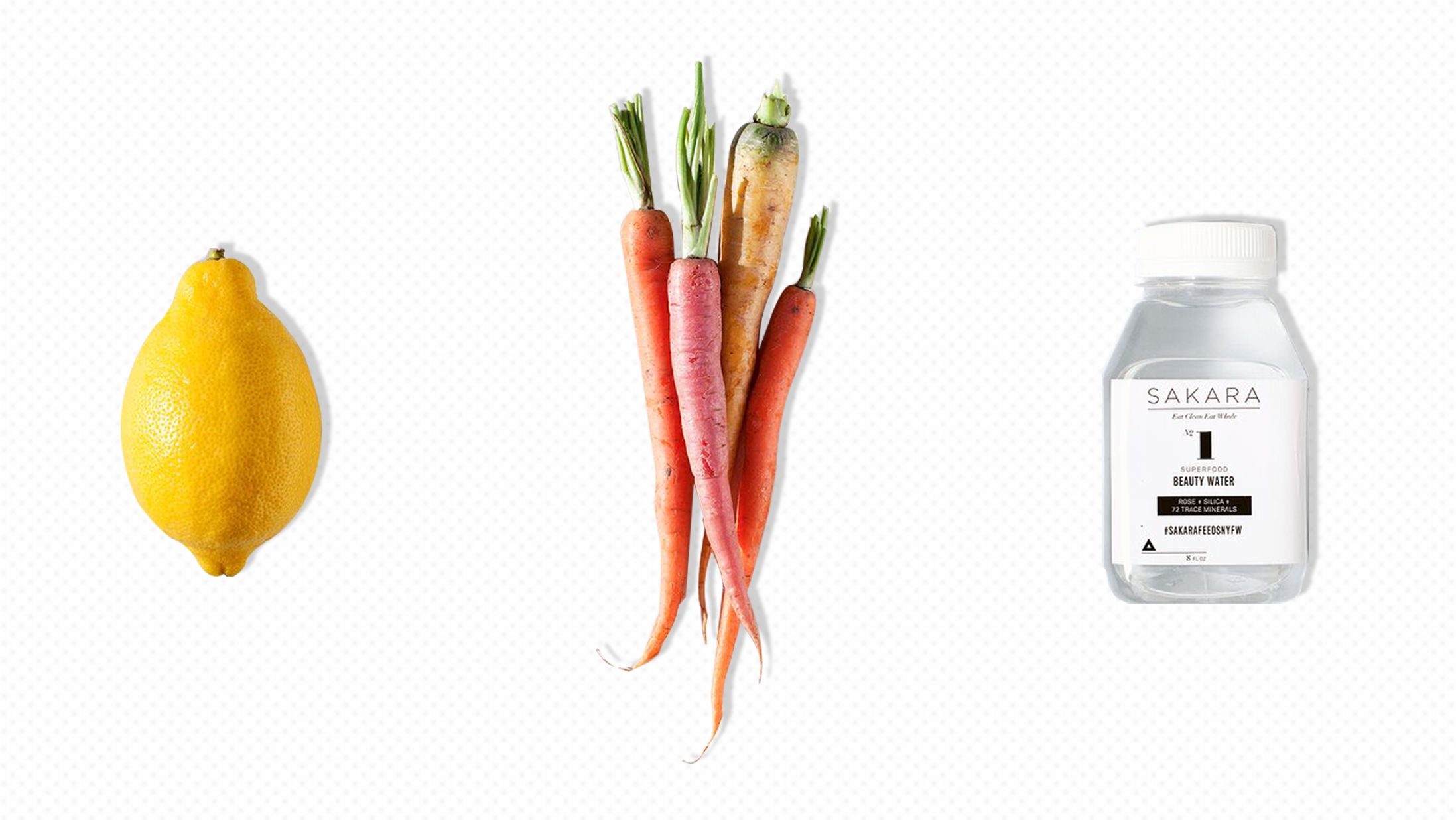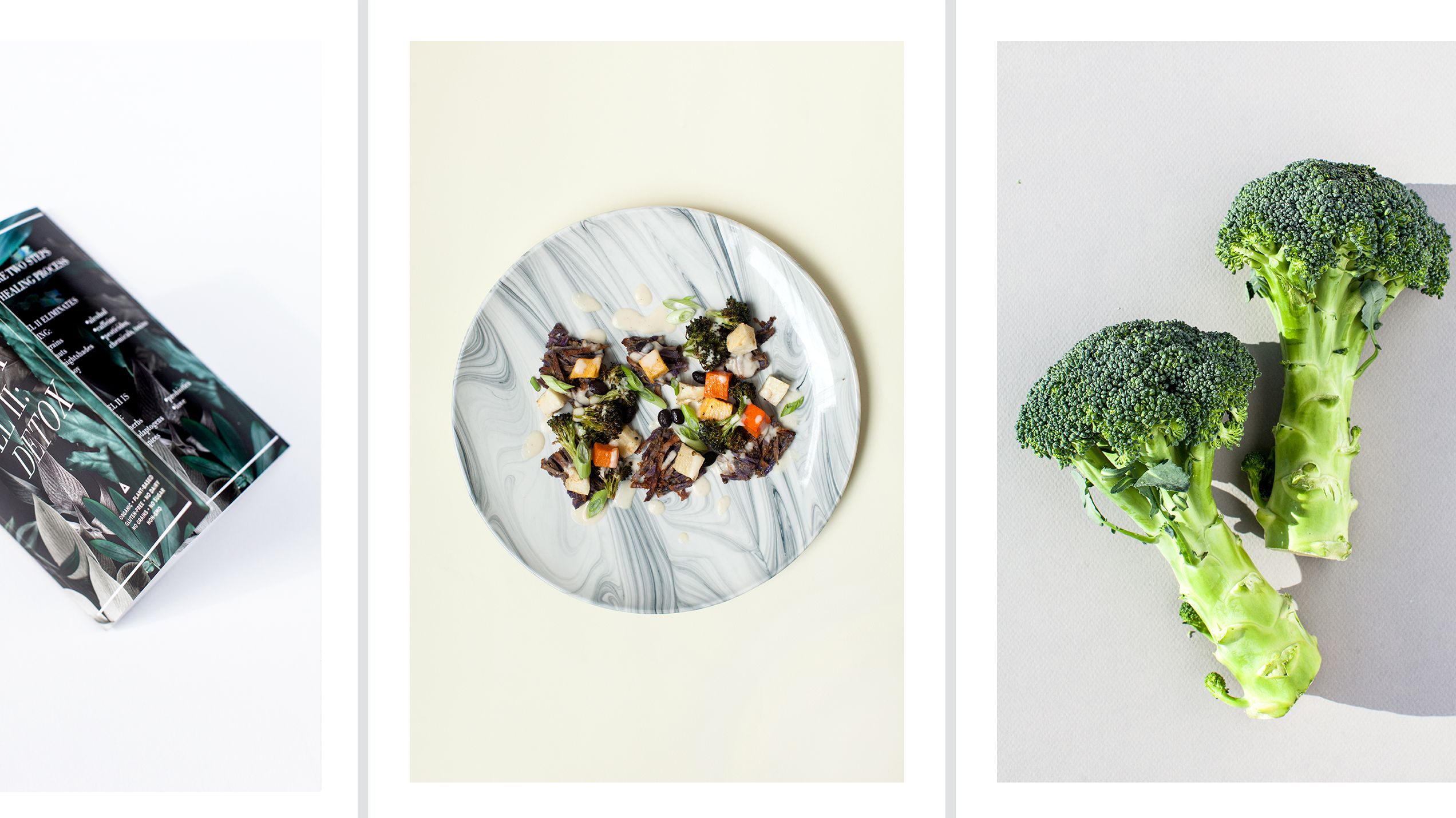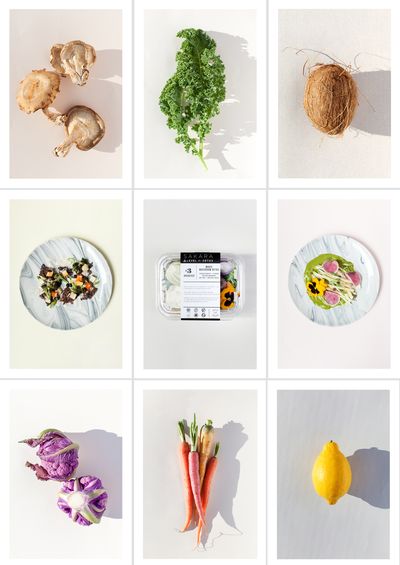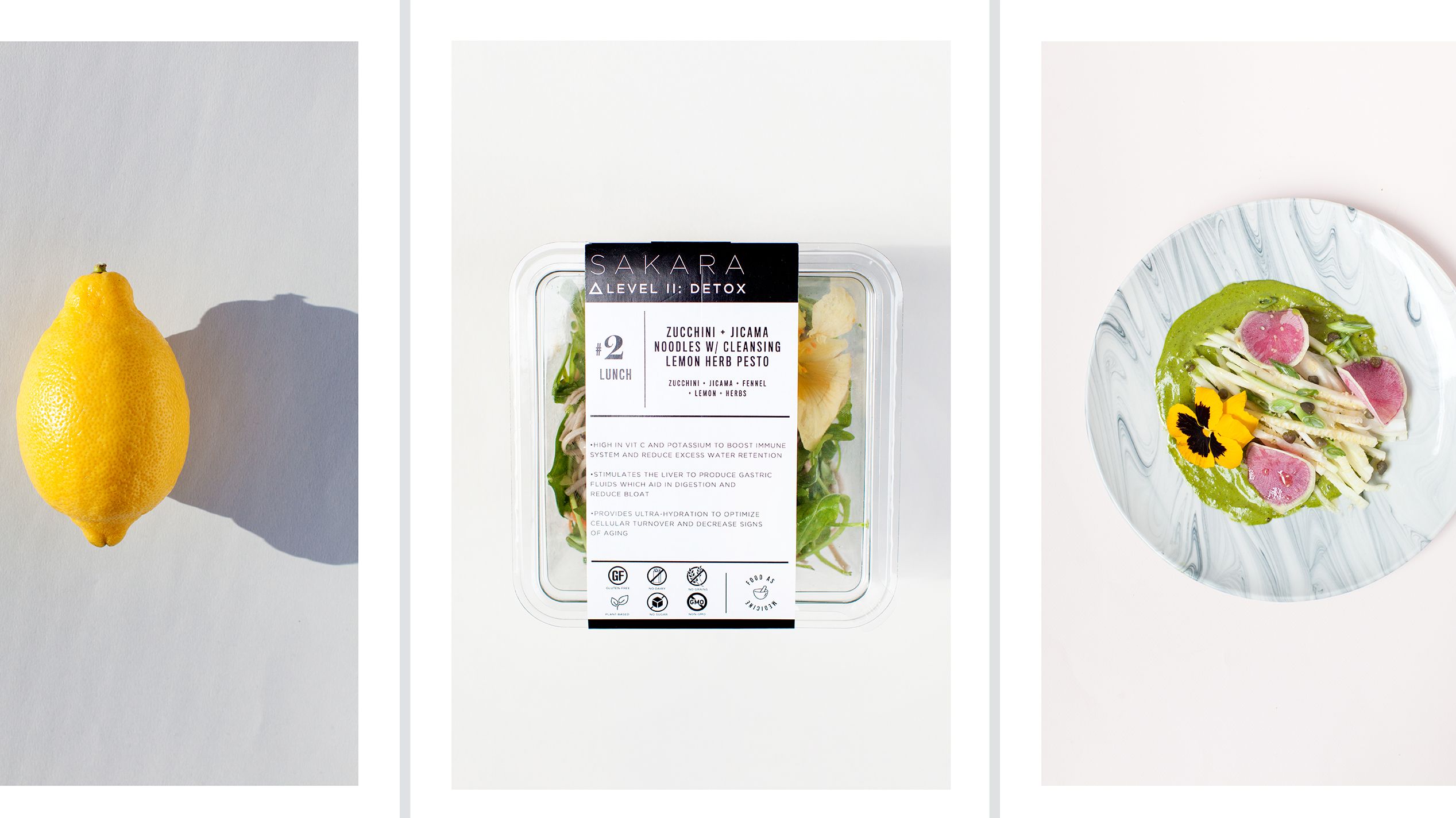The Truth Behind All Those Gut Health Claims
No alternative facts here.

I get it. Gut health is not a sexy topic. (Who wants to talk about something called "leaky gut?") It is, however, a buzzy one. Just do a Google search, and you can easily fall down a rabbit hole of weird blog posts and misinformation about diets and nutrition. Finding what's real, and more important, what works for you is a challenge and takes time.
Which is exactly why I decided to try the Sakara Life Level II program, out this month. You might know the delivery food service from their standard clean-eating program.
"Healing your gut and nourishing your microbiome is definitely a focus of ours," says co-founder Danielle DuBoise. "Your gut is the control center; if you want to change your body and take back your health, this is where you have to start."
"Your gut is the control center; if you want to change your body and take back your health, this is where you have to start."
The Level II program is a week-long detox that cuts out dairy, GMOs, gluten, grains, meat, nightshades, sugar, and caffeine. (Yeah.) Per the team at Sakara, by eliminating the foods that can potentially cause inflammation, irritate the lining of the digestive system, or discourage good bacteria growth, you're giving the gut a chance to heal itself and get back to optimal health. And then, because you're eating lots of leafy greens, probiotics, and antioxidants, you're giving your body all the tools it needs to kick it into high gear.
I figured if I wanted to see if there was any truth to this whole gut health phenomenon—at least for my body—this all-in approach was the way to do it.
And after, I had a few questions about the facts. (Basically: how much of these gut health claims are actually backed by science?) So I reached out to an expert: Dr. Pankaj Jay Pasricha, M.D., the director of the John Hopkins Center for Neurogastroenterology. He noted that a lot of this is still in the realm of speculation; while we are learning more everyday, I do want to avoid making any broad strokes here. There's a lot of nuance in diet, and it's important to pay attention to your own needs.

But first, things, first…
What is the deal with gut health?
Get exclusive access to fashion and beauty trends, hot-off-the-press celebrity news, and more.
Research is beginning to show just how important your digestive system is to, well, literally every other part of your body. "From a biological perspective the gut might be the most important organ if you think about what defines life in the broadest terms: the ability to convert energy from your environment," says Pasricha.

On a very basic level, this means that if you put in good food, you'll have a better outcome. If you don't, you won't. Regarding long-term health, however, is where this gets a little more complicated—and, IMHO, way more interesting. If you expose your gut to less-than-ideal foods (e.g.: fried, sugary, processed) regularly, overtime more systemic health issues can occur. For example, you can develop something called a "leaky gut." This means that the lining of your digestive system becomes more permeable, so chemicals from the gut will literally leak elsewhere in the body. These then trigger inflammation and hormonal reactions that can wreak havoc on your health.
So, the idea is that if you keep your gut healthy, you'll get a whole bunch of positive outcomes, like…
More Energy
Perhaps this is a no-brainer, but when you put whole, nutritious foods in your body, you have more energy. (Am I blowing your mind yet?). But I think this is something I—and many women I know—overlook.
And for me personally, this is where I felt the biggest difference after my week on the Level II program. My diet was 95 percent veggies, and that fuel felt good. I was rocking Barry's Bootcamp almost nightly and springing out of bed well before my alarm. (Both are something of a major feat for me.)
A Better Immune System
So getting sick sucks, obviously. Often, it's totally unavoidable. But have you noticed that people who tend to eat better—the Gwyneth Paltrows of the world—are like always glowing rays of sunshine that don't ever sneeze or blow their nose? Same! It's super annoying.
"The gut is essentially an external organ, constantly being exposed to your environment—not just by what you ingest, but by what you inhale, too," says Pasricha. "So these things are knocking on the gate to your body, represented by the gut, at all times."
And if you're able to keep the lining of the gut strong, you'll be better equipped to keep all the bad stuff out.
Sharper Focus
While there's more research that needs to be done on the gut-brain connection, there seems to be a link between diet and cognitive function. Sometimes you might hear people refer to this as "brain fog," or that hazy, can't-really-concentrate-feeling you may sometimes get.
"Fun fact: the second largest collection of nerves—after the brain—is in the stomach."
"The nervous system is directly connected to the gut, so it is possible that it can alter our mental function," says Pasricha. "The gut is not just an abstract organ." (Also, #FunFact I learned from Pasricha: the second largest collection of nerves—after the brain—is in the stomach!)
Like a lot of people, I tend to lose concentration midday. As I was getting later into the week, I was seeing a slight improvement, or at least no sugar crash after meals, but I defiantly didn't have the superpower levels of productivity I was hoping for. (Maybe I shouldn't have set my expectations too high; superpowers are a lot to ask for.) Regardless, if you are someone who wants to avoid the post-lunch slump, it is worth reevaluating what you are eating. Avoid high-glycemic foods and stick to greens, good fats, and proteins.

Happiness Levels Soar
This one I find the most fascinating. Can I eat my way to a happier lifestyle? I certainly know I'm in a better mood after clean eating—but is that just a placebo affect or is something bigger at play?
"For a long time the thought was that the gut is a pathway to whatever happens in the brain," says Pasricha. Two examples: You get nervous, so you get butterflies in your stomach or chronic anxiety can trigger nausea."Now we're finding it goes both ways."
Even if you're talking short-term, this makes sense. Think about your mood after you eat poorly. Perhaps you feel irritable, cranky, or withdrawn. (*Raises hand*) But what we're finding is that poor gut health for an extended period might be able to rewire the brain.
"There's an initial study on rodents that shows if you irritate the lining if the stomach even mildly, they will show signs of anxiety and depression even as they age," says Pasricha. "Basically, your gut can heal itself quickly, but if you are consistently bothering it, you will see the brain actually change its organization."
Clearer Skin
If there's nothing else that will convince you to try clean eating, here's a very superficial one: My. Skin. Was. Glowing. Like, I'm about to take all the selfies because it never looks this good glowing. The glow was so strong, I strutted around town sans makeup because it was on point all on its own.
"If you follow the line of reasoning that the gut affects every organ in the body, it does make sense that it would affect the largest one," says Pasricha.
"If you follow the line of reasoning that the gut affects every organ in the body, it does make sense that it would affect the largest one—skin."
So what can you do?
"This is the million-dollar question," says Pasricha. The research as of now cannot definitively identify what an ideal diet would look like. Instead, Pasricha suggests just focusing on what you know works for you: "If you have an obvious problem with a type of food, you find that it gives you GI issues, that's a good place to start. Then if you find that you feel ill in a more systemic way from certain foods, you might want to evaluate those too."
Look at what you're eating day-to-day, and be mindful about how it makes you feel after. If it helps, start a journal so you can keep track of your dietary concerns (but please note: this isn't a calorie counting thing; you just need to pay attention to what you're eating and how your body feels). Or if you're like me and need a bit of guidance, you can turn to programs, like Sakara Life that already outline potential triggers, so you can more readily identify causes.
TL/DR: Listen to your body. It knows what's good for it.
We're nominated for a Webby Award—but we need your vote to win! Vote for the Women and Guns project here.